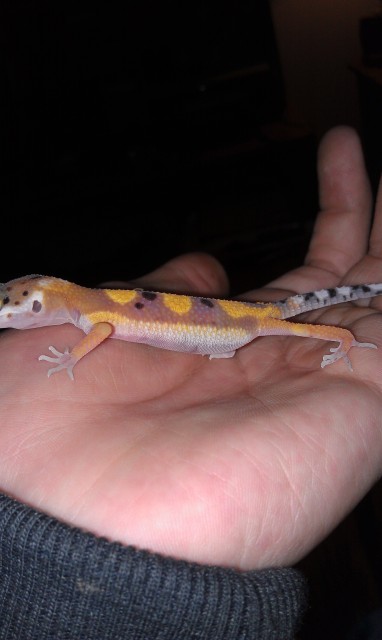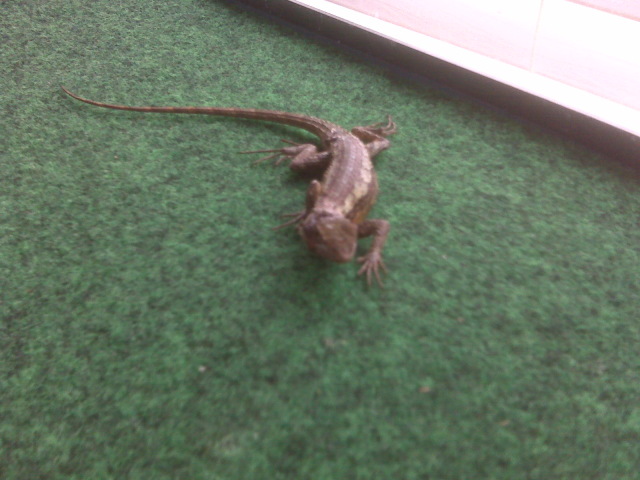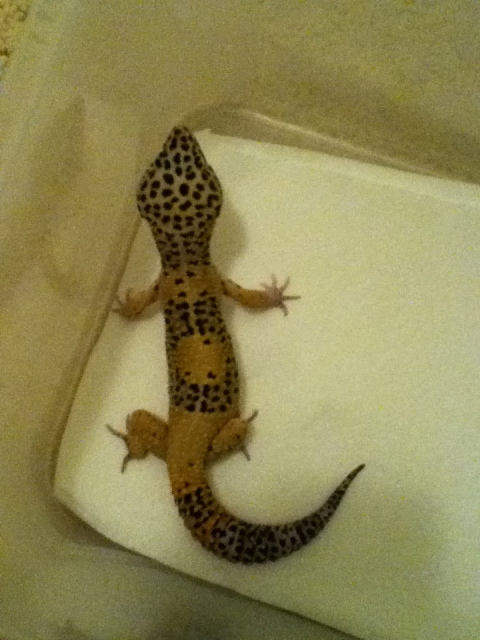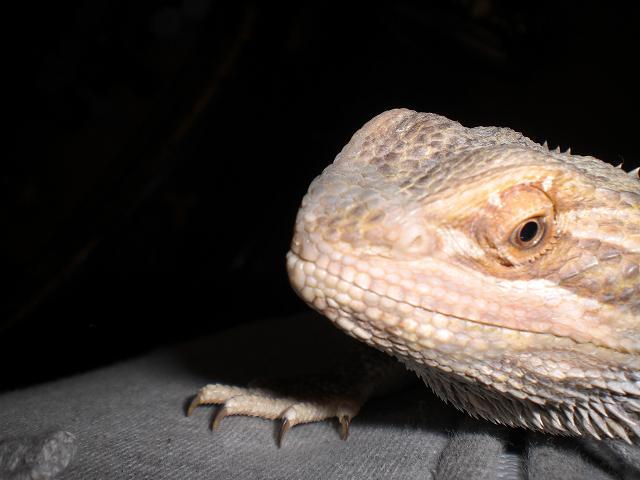QuestionQUESTION: Ok now i think u just convinced me that reptile do need special ighting to produce vitamin D3.The next question is can the calcium+d3 supplement for reptiles replace the purpose of uvb light to supply the reptile needed vitamin D3?there is a local reptile supplier tell it worked.Then if not why the calcium come with vitamin D3?Why they want to produce these kind of products as it cant have any real effects?
ANSWER: Hello Kew,
The problem is that with reptile products, they are not very well regulated so products that are not very good oftentimes get pushed through & sold to the public.
The calcium with D3 is usually recommended for use with reptiles that will be under weaker fluorescent tube bulbs. The tube bulbs do not always provide adequate UVB exposure especially if they are not changed on a regular basis, thus increasing the need for supplementation of D3. The reptile might not make enough D3 because of lowered UVB exposure.
If a mercury vapor bulb is used, which has a much stronger UVB emissions, allow the reptile to synthesize a much higher amount of D3 because of better quality exposure of UVB.
So, there is a need to do plenty of research beforehand when purchasing reptile products. Let me know if you have any other questions.
Tracie
---------- FOLLOW-UP ----------
QUESTION: My local reptiles supplier told me that it works.then if you are correct how do you prove to me that the supplement powder are not well regulated?
ANSWER: Hello Kew,
The powders & supplements are pretty decent & some are regulated. However, the "solar drops" or the D3 liquid is not regulated & there are no set RDA on the dosage of D3 in reptiles. Any excess D3 given synthetically without careful dosing can cause organ calcification, soft tissue calcification as well as organ failure. It is imperative if you do use liquid D3 that it is carefully given & in a sparing manner.
Some of the calcium powders are made with oyster shell or other harder minerals which are hard for them to break down. You will need the pharmaceutical brand which has small particle sizes for better absorption. Some supplements can have higher levels of lead in them, which can lead to toxicities too.
There is NO substitute for UVB in reptiles. Once you keep them for long enough, you will realize the importance of it, especially after taking in rescues that have been neglected of UVB, calcium & overall nutrition.
Other than that, I cannot prove anything except for what is already on the labels, or from past or previous use of products. It's just that some products are better than others & you have to weed through it all & figure that out by researching, etc.
It is a continuous learning experience.
Tracie
---------- FOLLOW-UP ----------
QUESTION: So again you insist that there are no substitute for UVB in reptiles.How about this?"In their book "Day Geckos in Captivity", Gregg and Leann Christenson write in depth about maintaining day geckos without UVB".Do you read that book?I myself not read it,but in the GeckoForums.net somebody told me about that.What do you think about that?For me i think that there is pointless for us to keep debate on which product is better or what inside the product.For example monitor lizard,they are canivorous.In the wild their main diet consists variety of vertebrates from frogs,rodents to fish.There they obtain the vitamin D3 through their food.The fact is who regulate the vitamin D3 doses of their prey?When they get bigger they eat much,which mean they no more eat crickets,locusts and other insects.They will more likely prey on larger vertebrates which contains high D3.How come they wont overdose on D3 in the wild?how do they regulate their D3 doses?Is the nature regulate the D3 inside the mice for the monitor lizard to consume it safely?What about if the monitor lizard consume multiple live prey li the same day?Asian monitor lizard get quite large up to 9 feet.One rodent wont enough to fullfill their appetite.I have heard that they even prey on chicken in our country which is Malaysia.What do you think if mice can fullfill the needed of D3 for snake up to one week(snake usually eat only once a week).Then the monitor lizard must eat multiple mice per day.So the monitor lizard will get at least several times D3 more than the snake.How come the monitor lizard wont overdose on D3 in the wild?Im curios.
AnswerHello Kew,
Exactly what type of species are you discussing that you think don't need any UVB? Geckos & snakes normally do not, no because their livers synthesize & store D3 in a different manner than other reptiles. So, most of the time no, geckos & snakes do not need UVB lighting. It has been shown that they can benefit from it, however, on low levels.
Monitor lizards get tons of UVB in the wild, so that isn't a problem. They eat a wide variety of foods, as well as get UVB exposure so their body synthesizes the amount needed for their body, of D3. So they obtain D3 through the sun & through their food. The insects will have a certain amount of nutrients in them from what they eat for their diet.
They will not overdose in D3 in the wild because it is a natural source coming from the sun & from food whereas when you supplement D3 it is synthetic which can build up in toxic amounts in the body if excess is given. Synthetic supplementation is much different from the body making it instead. They convert only the necessary amount needed instictively within their body. The D3 is converted to calcediol in the liver, then to calcediol into the kidneys, then, stored & excreted out. They have a built in safety mechanism that prevents overproduction of D3 in the skin from sun exposure.
Tracie

 Vomiting Leopard Gecko
QuestionBloating and Tail
QUESTION: Hi Tracie,
T
Vomiting Leopard Gecko
QuestionBloating and Tail
QUESTION: Hi Tracie,
T
 baby bearded dragon eats little
QuestionPat
QUESTION: We recently purchased a ba
baby bearded dragon eats little
QuestionPat
QUESTION: We recently purchased a ba
 Texas Tree Lizard
Question
texas lizard
My son found an injured lizard. &
Texas Tree Lizard
Question
texas lizard
My son found an injured lizard. &
 Leopard Gecko concerns
QuestionKobi
Kobis Eye
QUESTION: Hi, I
Leopard Gecko concerns
QuestionKobi
Kobis Eye
QUESTION: Hi, I
 spots
Question
my dragon
In the past week my bread dragon has
spots
Question
my dragon
In the past week my bread dragon has